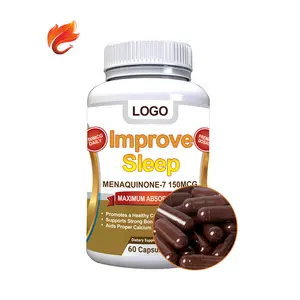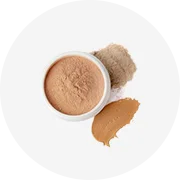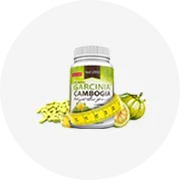

Private Label Oem Odm Organic Vegan 200 Bulk Natural Extract Root Bulk Red Extract Tongkat Ali Capsules Pills

Tongkat Ali Capsule Invigorating Spleen Tongkat Ali Essence Extract Pill 1000Mg 500Mg Hard Capsule Supplement













Embark on a journey through the verdant landscapes of Malaysia, where the ancient Tongkat Ali root, known scientifically as Eurycoma longifolia, has been a cornerstone of traditional medicine for centuries. This remarkable herb, celebrated for its myriad health benefits ranging from enhancing fertility to boosting energy levels, is a testament to the power of nature's apothecary. As we delve into the world of premium Tongkat Ali suppliers, we uncover the essence of this potent botanical, its diverse applications, and the importance of ethical sourcing from the heartland of its origin. Join us as we explore the rich tapestry of benefits and the cultural significance of Malaysia's treasured natural remedy.

Tongkat Ali, scientifically known as Eurycoma longifolia, is a revered herbal remedy deeply rooted in Southeast Asian traditional medicine. Its historical use spans centuries, primarily aimed at treating a myriad of health conditions. Among its noted applications are the alleviation of fevers, addressing erectile dysfunction, and combating bacterial infections.
Current studies shed light on the potential of Tongkat Ali to enhance male fertility, act as a stress reliever, and contribute to improved body composition. However, it's important to acknowledge that research in these specific areas remains in its nascent stages.
While Tongkat Ali is celebrated for its diverse benefits, it is also crucial to approach its consumption with caution due to concerns raised over its safety profile. In-depth reviews of Tongkat Ali cover a spectrum of topics from its health-promoting benefits to its possible side effects and recommended dosages, providing a comprehensive understanding of this traditional botanical.
Malaysia is recognized as the natural habitat of the renowned medicinal plant, Tongkat Ali, known scientifically as Eurycoma longifolia. This plant has garnered significant attention due to its medicinal properties, particularly as an energy booster and aphrodisiac. The country's efforts in conservation and sustainable utilization of Tongkat Ali are noteworthy, with institutions like the Malaysian Agriculture Research and Development Institute taking the lead in preserving the genetic diversity of this species. The research conducted provides insights into the distribution and genetic diversity of Tongkat Ali, ensuring that the rich genetic makeup of the plant is maintained for future generations.
The two species of Tongkat Ali found in Malaysia, Eurycoma longifolia and Eurycoma apiculata, thrive in distinct climatic zones, with E. longifolia being more widespread. The plant's rarity in producing flowers and fruits in the wild underscores the importance of ethical sourcing and conservation. With Malaysia's diverse ecosystems providing the perfect conditions for Tongkat Ali, suppliers from the region are likely to offer a range of genetic variations of this plant, which is crucial for various applications in the health and wellness industries.

In the quest for authentic Tongkat Ali, discerning buyers on Alibaba.com can identify premium suppliers by examining the variety and extraction ratios offered. Suppliers showcase a range of Tongkat Ali products, from root extract powders to capsules, indicating a breadth of options for different market needs. The extraction ratios, such as 10:1, 20:1, and even 200:1, are crucial indicators of concentration and potency, catering to a spectrum of health and dietary supplement requirements. The presence of Eurycomanone, the active compound within Tongkat Ali, is often highlighted, with some suppliers providing options with standardized percentages, ensuring a consistent product quality. The diversity of these offerings reflects the suppliers' commitment to meeting various consumer demands, from general health supplements to targeted male health support. By focusing on the extraction details and product range, buyers can gauge the supplier's expertise and reliability in providing genuine Tongkat Ali products.
Tongkat Ali, scientifically known as Eurycoma longifolia, is available in various forms and types, each with distinct characteristics. The plant is recognized for its color-coded root system, which differentiates the species and their respective uses. The white/yellowish root variety is commonly referred to as 'tongkat ali putih' or 'pasak bumi kuning,' while the darker-colored species are known as 'tongkat ali hitam' or 'pasak bumi hitam.' There is also a red-colored variety, 'tongkat ali merah,' which is currently under research and yet to be classified. These varieties are part of the rich biodiversity found in Malaysia, the heartland of Tongkat Ali, where the plant is a significant part of traditional medicine and supplements.
In the realm of traditional medicine and modern supplements, the roots of Tongkat Ali are highly sought after for their medicinal properties. The roots are known for their bitter taste and are used in various health products. The plant's parts, including the roots, leaves, and fruits, have been traditionally used to treat a range of ailments from fever and malaria to aphrodisiac and health tonics. The Malaysian market has capitalized on this heritage by offering over 200 registered Tongkat Ali products, reflecting the plant's integral role in local health and wellness industries.
Tongkat Ali, known scientifically as Eurycoma longifolia, has a rich tradition of use in Southeast Asian folk medicine, particularly for its reputed benefits in enhancing energy, mood, and libido, which are crucial for overall well-being. Its applications extend beyond traditional remedies, as it is increasingly incorporated into various industries for its health-promoting properties. In the dietary supplement sector, Tongkat Ali is sought after for its potential to manage menopausal symptoms and improve quality of life, mood, and sexual function. Its bioactive compounds, such as alkaloids and quassinoids, are also recognized for their antioxidative properties, making it a valuable ingredient in nutraceuticals aimed at reducing oxidative stress and improving physical performance. The herb's adaptogenic effects are leveraged in the wellness industry to formulate products that aim to alleviate stress and enhance stamina. Moreover, preliminary research suggests that Tongkat Ali may have a role in bone health, indicating potential uses in products targeting age-related bone density loss. The versatility of Tongkat Ali, coupled with ongoing research into its efficacy, underscores its growing significance across various health and wellness industries.

Tongkat ali, scientifically known as Eurycoma longifolia, is a plant renowned for its bioactive compounds, which include alkaloids, steroids, and notably, quassinoids—the major active component found in the roots. These compounds are central to the plant's traditional and modern applications, contributing to its reputation as an adaptogen, aiding the body in adapting to various forms of stress.
The roots of tongkat ali are particularly sought after for their medicinal value. They are used to stimulate appetite, increase strength, energy, and as an antibiotic. In the realm of traditional remedies, a water decoction of the plant was commonly consumed, but today, E. longifolia is available in various forms, including powders and capsules, catering to different consumer preferences and usage scenarios.
In terms of applications, research has pointed to tongkat ali's potential in enhancing male fertility and sexual performance, acting as an ergogenic aid for athletes by decreasing stress and increasing testosterone levels, and even showing promise in bone health. Its anti-inflammatory and antimicrobial properties have been observed in laboratory settings, indicating a broad spectrum of potential uses.
While the plant's benefits are diverse, it is crucial to understand the appropriate therapeutic doses to avoid toxicity. The recommended intake is generally advised not to exceed 200–400 milligrams daily, highlighting the importance of quality control and precise specification when sourcing the product. Suppliers must ensure that their products adhere to these guidelines to provide safe and effective tongkat ali supplements.
A key aspect of assessing the quality of Tongkat Ali is understanding the specific metrics that indicate its potency and purity. The root extract of Eurycoma longifolia, known as Tongkat Ali, is evaluated through clinical research to ensure its efficacy. The presence of bioactive compounds, particularly quassinoids such as eurycomanone, is essential as they are known to support healthy testosterone production. The concentration of these compounds, especially in standardized extracts, is a critical quality metric. Suppliers may provide various extract ratios, with some offering highly concentrated forms like a 100:1 extract, which indicates the extract is 100 times more concentrated than the raw herb. It's important to note that these statements have not been evaluated by the Food and Drug Administration, and the products are not intended to diagnose, treat, cure, or prevent any disease. Consumers should look for suppliers that adhere to stringent quality control processes to ensure the product's integrity and effectiveness.
Tongkat ali, known for its potential health benefits, is deeply rooted in the traditional medicine of Southeast Asia. Malaysia, in particular, stands out as a central hub for this herbal remedy. The country's rich biodiversity and traditional knowledge create an environment where tongkat ali thrives both in quality and efficacy. The herb contains compounds such as flavonoids and alkaloids, which are recognized for their antioxidant properties, fighting cellular damage and offering various health benefits.
Sourcing tongkat ali from Malaysia offers the advantage of obtaining the herb in its most authentic form. The traditional methods of cultivation and harvesting honed over centuries ensure that the plants reach their full potential. This heritage is crucial, as the quality of tongkat ali can significantly influence its effectiveness in treating ailments such as male infertility and infections. By choosing suppliers from Malaysia, businesses are tapping into a lineage of traditional practices that contribute to the superior profile of the herb.
Moreover, the Malaysian climate is ideal for the growth of Eurycoma longifolia, ensuring that the tongkat ali supplied is of a consistently high standard. The commitment to ethical sourcing and sustainability within the region further enhances the appeal of Malaysian tongkat ali, aligning with global demands for environmentally conscious products. Thus, sourcing from Malaysia not only provides access to a potent herbal supplement but also supports sustainable and ethical agricultural practices.
The ethical and sustainable sourcing of Tongkat Ali is a cornerstone of the extraction process. The roots, which are the most potent part of the plant, are selected based on stringent qualification tests, ensuring that only the best candidates are used. This selection is crucial as it directly impacts the bioactive compounds, such as quassinoids, which are vital for the herb's health benefits. The extraction process is not only about obtaining these compounds but also about doing so in a way that is safe and beneficial for health.
The commitment to sustainability extends to the adherence to quality control protocols that align with national and international safety standards. The process includes a batch-to-batch quality control regime, which guarantees that each supplement contains the correct amount of bioactive compounds. This meticulous approach to quality ensures that consumers receive a consistent and effective dose.
Moreover, the products are certified halal, allowing individuals from various spiritual backgrounds to use them with confidence. The commitment to ethical sourcing is further underscored by the adherence to Good Manufacturing Practice (GMP) and certifications from various international standards, ensuring that the products are safe and responsibly made.
In conclusion, Tongkat Ali, or Eurycoma longifolia, stands as a paragon of natural health remedies, with its roots deeply entrenched in the rich soil and heritage of Malaysia. The country's unique biodiversity and traditional expertise in cultivating this herb ensure that suppliers offer products of unparalleled authenticity and potency. From the various extract ratios to the meticulous quality control measures, each aspect of Tongkat Ali production is a testament to the commitment to excellence. The herb's extensive applications in enhancing well-being, from dietary supplements to traditional medicine, highlight its adaptogenic prowess. As we consider the advantages of sourcing from Malaysia, the importance of sustainability and ethical practices in harvesting this botanical treasure becomes clear. By choosing Malaysian Tongkat Ali, consumers and businesses not only gain access to a premium health supplement but also contribute to the preservation of an age-old tradition and the well-being of our planet.